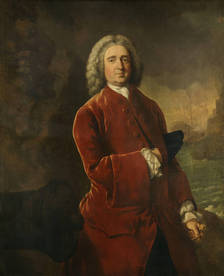- Quiz part 2 View
by alijay13 on May 10, 2009 at 12:17:23 PDT
1. From which country does the word 'Grog' come?
2. What is ale with a dash of gin known as?
3. According to Dean martin you're not drunk if you can .............?
4. Where does "Let us eat and drink for tomorrow we die" come from?
5. What happened for the last time in England on 11 June 1872 to drunkard Mark Tuck as a result of him being an 'incorrigible bacchanalian'?Good Luck :-)
- Re: Quiz part 2 View
by Diamond-Di on May 11, 2009 at 00:13:05 PDT
1. From which country does the word 'Grog' come? Supposedly America around 1740 by Vice Admiral Edward Vernon
2. What is ale with a dash of gin known as? .... a dogs nose
3. According to Dean martin you're not drunk if you can .............?lie on the floor without holding on
4. Where does "Let us eat and drink for tomorrow we die" come from? The Bible, Isaiah 22
5. What happened for the last time in England on 11 June 1872 to drunkard Mark Tuck as a result of him being an 'incorrigible bacchanalian'? He was put in the StocksThanks for the fun Ali.... Di xxx
- Re: Quiz part 2 View
by alijay13 on May 11, 2009 at 11:01:16 PDT
: 1. From which country does the word 'Grog' come? Supposedly America around 1740 by Vice Admiral Edward Vernon
: 2. What is ale with a dash of gin known as? .... a dogs nose
: 3. According to Dean martin you're not drunk if you can .............?lie on the floor without holding on
: 4. Where does "Let us eat and drink for tomorrow we die" come from? The Bible, Isaiah 22
: 5. What happened for the last time in England on 11 June 1872 to drunkard Mark Tuck as a result of him being an 'incorrigible bacchanalian'? He was put in the Stocks: Thanks for the fun Ali.... Di xxx
Well done Di :-) all correct.
- Hmmmm ....... 1 Admiral Vernon - known as 'Old Grog' View
by TiggyT on May 12, 2009 at 06:15:21 PDT
There appears to be some misleading information here, as most of us on FSW live in the UK I thought you might like to know that Admiral Vernon was BRITISH!Although I have read of Vice-Admiral William Penn of Pennsylvania being the orginator of 'Grog', the name came about due to the Grogram coat that Admiral Vernon always wore.
So, the answer should be England, not the US!
I have a protrait of Admiral Vernon here at home, (my maiden name is Vernon), although we do not believe he was really a 'blood relative', my Grandfather tried in vain to find out, if indeed, he was a forbearer of our branch of the family!!!! (That is another story!).
So, here is part of the entry from Wikipedia to clear things up a bit for you!!
Tiggy :)
Edward Vernon ("Old Grog") (12 November 1684 - 30 October 1757) was an English naval officer.

Vernon was born in Westminster, England and went to Westminster School. He joined the Navy in 1700 and was promoted to Lieutenant in 1702 and served on several different ships for the next five years. He was appointed Captain in 1706 being appointed to HMS Rye, part of the fleet of Cloudesley Shovell. In the next ten years he was on half pay for half of this time. In May 1728 he took up parliamentary duties and the case of Robert Jenkins, who was alleged to have had his ear cut off by Spanish coastguards in the Caribbean.
This led to the War of Jenkin's Ear in 1739 in which Vice Admiral Jenkins led a fleet along with Major General Thomas Wentworth. Vernon captured Porto Bello a Spanish colonial possession, as a result of which, he was granted the Freedom of the City of London.
However, Vernon's next campaign against the Spanish, a large-scale assault on Cartagena de Indias in 1741 ended in disaster. The strategic defense of the colonial port of Cartagena, together with weather and disease led to heavy British casualties and eventually a retreat to Jamaica. Following the disease outbreak and quarrels with Wentworth, Vernon returned to the UK to find he had been elected MP for Ipswich. However, the news of the Cartagena defeat eventually led to the collapse of Robert Walpole's government. Vernon maintained his Naval career for another four years before retiring in 1746. In an active Parliamentary career Vernon advocated an improvement in naval procedures and he continued to hold an interest in naval affairs until his death in 1757.
His enduring claim to fame was his 1740 order that his sailors' rum should be diluted with water. In 1740, citrus juice (usually lemon or lime juice) was added to the recipe of the traditional daily ration of watered-down rum known to cut down on the water's foulness. Although they did not know the reason at the time, Admiral Edward Vernon's sailors were healthier than the rest of the navy, due to the daily doses of vitamin C the sailors received. However, it was not until 1747 that James Lind formally proved that scurvy could be treated and prevented by supplementing the diet with citrus fruit such as limes or lemons. The rest of the Royal Navy rapidly followed his lead, supposedly calling the new drink "grog" after Vernon's nickname "Old Grog", attributed to his habitual wearing of a grogram coat.
- Re: Hmmmm ....... 1 Admiral Vernon - known as 'Old Grog' View
by alijay13 on May 12, 2009 at 12:08:40 PDT
I appear to have been having a blonde moment or a senior moment not sure which lol. (ignore the post below)Thank you for the information Tiggy, I only took the quiz questions and answers from the book I have.
It just goes to show you can't believe everything you read, and just because the book says so it is not guaranteed to be correct.
Ali x
- Re: Hmmmm ....... 1 Admiral Vernon - known as 'Old Grog' View
by alijay13 on May 12, 2009 at 12:05:26 PDT
: There appears to be some misleading information here, as most of us on FSW live in the UK I thought you might like to know that Admiral Vernon was BRITISH!: Although I have read of Vice-Admiral William Penn of Pennsylvania being the orginator of 'Grog', the name came about due to the Grogram coat that Admiral Vernon always wore.
: So, the answer should be England, not the US!
: I have a protrait of Admiral Vernon here at home, (my maiden name is Vernon), although we do not believe he was really a 'blood relative', my Grandfather tried in vain to find out, if indeed, he was a forbearer of our branch of the family!!!! (That is another story!).
: So, here is part of the entry from Wikipedia to clear things up a bit for you!!
: Tiggy :)
: Edward Vernon ("Old Grog") (12 November 1684 - 30 October 1757) was an English naval officer.
:
:
: Vernon was born in Westminster, England and went to Westminster School. He joined the Navy in 1700 and was promoted to Lieutenant in 1702 and served on several different ships for the next five years. He was appointed Captain in 1706 being appointed to HMS Rye, part of the fleet of Cloudesley Shovell. In the next ten years he was on half pay for half of this time. In May 1728 he took up parliamentary duties and the case of Robert Jenkins, who was alleged to have had his ear cut off by Spanish coastguards in the Caribbean.
: This led to the War of Jenkin's Ear in 1739 in which Vice Admiral Jenkins led a fleet along with Major General Thomas Wentworth. Vernon captured Porto Bello a Spanish colonial possession, as a result of which, he was granted the Freedom of the City of London.
: However, Vernon's next campaign against the Spanish, a large-scale assault on Cartagena de Indias in 1741 ended in disaster. The strategic defense of the colonial port of Cartagena, together with weather and disease led to heavy British casualties and eventually a retreat to Jamaica. Following the disease outbreak and quarrels with Wentworth, Vernon returned to the UK to find he had been elected MP for Ipswich. However, the news of the Cartagena defeat eventually led to the collapse of Robert Walpole's government. Vernon maintained his Naval career for another four years before retiring in 1746. In an active Parliamentary career Vernon advocated an improvement in naval procedures and he continued to hold an interest in naval affairs until his death in 1757.
: His enduring claim to fame was his 1740 order that his sailors' rum should be diluted with water. In 1740, citrus juice (usually lemon or lime juice) was added to the recipe of the traditional daily ration of watered-down rum known to cut down on the water's foulness. Although they did not know the reason at the time, Admiral Edward Vernon's sailors were healthier than the rest of the navy, due to the daily doses of vitamin C the sailors received. However, it was not until 1747 that James Lind formally proved that scurvy could be treated and prevented by supplementing the diet with citrus fruit such as limes or lemons. The rest of the Royal Navy rapidly followed his lead, supposedly calling the new drink "grog" after Vernon's nickname "Old Grog", attributed to his habitual wearing of a grogram coat.
- Re: Hmmmm ....... 1 Admiral Vernon - known as 'Old Grog' View
- Hmmmm ....... 1 Admiral Vernon - known as 'Old Grog' View
- Re: Quiz part 2 View
- Re: Quiz part 2 View




